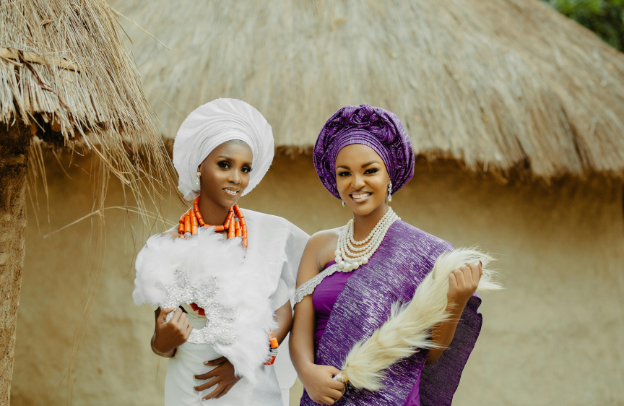African Diaspora and Cultural Exchange: Why Tourism is Key to Rebuilding Connections

What happens when a journey becomes more than a destination? For members of the African diaspora, a trip to the continent is far more than sightseeing, it is a pilgrimage, a reclaiming of stories, and a bridge across centuries of separation. In an era where global Black identity is being reshaped through art, culture, politics, and economics, cultural travel is fast emerging as a vital force in restoring connections between Africa and its diasporic descendants.
Learn How to Leverage Your Story through our Story To Asset Framework.
Through carefully curated travel experiences, meaningful exchanges, and shared narratives, travel is no longer just about leisure; it has become about legacy building. Request a trip.
Through countless conversations and ongoing engagement with members of the African diaspora, Obehi Ewanfoh came to understand a powerful truth: reconnecting people with their roots through cultural travel is not just meaningful but essential.
That realization led to the creation of The Diaspora Tourism Experience (DTE), an initiative dedicated to connecting more members of the diaspora with the African continent, in collaboration with various travel agencies across Africa.
With over a decade of experience in the hospitality industry in Verona, Italy, and more than 1,000 in-depth interviews conducted on The Obehi Podcast, Ewanfoh identified a significant gap in the travel space, a lack of platforms that genuinely celebrate African and diasporan heritage.
DTE was born to fill that gap, offering a purposeful, culturally rich journey that goes beyond travel to foster deep, transformative connections across the African world.
This cultural reconnection is not accidental; it is the result of growing recognition on both sides of the Atlantic that mutual healing, growth, and innovation require relationship-building.
From Ghana’s Year of Return to Rwanda’s investment in diaspora-driven innovation, travel is being intentionally positioned as a tool for transformation, rooted in traditional African principles of community, unity, and reciprocity.
Historical Fracture, Contemporary Repair
The African diaspora was born not by migration but by force. The transatlantic slave trade dispersed millions of Africans across the Americas and the Caribbean, creating communities that were systematically stripped of language, cultural practices, and historical continuity. What resulted was a generational yearning to reconnect with origins long obscured.
Today, that yearning is being answered through cultural travel, which allows diasporans to encounter Africa not through textbooks, but through taste, touch, sound, and conversation. Initiatives like Ghana’s Year of Return in 2019 and its successor program Beyond the Return have welcomed more than a million visitors from across the African diaspora, generating over $1.9 billion in revenue and rekindling lost cultural ties.
See also Historic & Heritage Sites
These experiences are more than economic transactions; they are identity restoration projects. Diasporans are reclaiming traditional names, participating in local festivals, and tracing lineages to specific ethnic groups, from the Yoruba in Nigeria to the Ashanti in Ghana. In these moments, travel becomes a vehicle for memory.
Tourism as a Living Classroom
Unlike conventional travel, cultural travel invites immersive participation. Whether joining a drumming workshop in Senegal, cooking a traditional meal in Ethiopia, or attending a storytelling evening in Kenya, travelers from the diaspora gain more than exposure; they gain context.
They enter into active dialogue with history, discovering shared cultural threads that remain intact despite time and distance.
Organizations like Birthright AFRICA and AClasses Academy, through their The Diaspora Tourism Experience (DTE), are curating experiences that prioritize education, cultural understanding, and community exchange.
These programs often incorporate visits to slave dungeons, name ceremonies, language workshops, and entrepreneur meetups. For many diasporans, it’s the first time they have been addressed by elders in indigenous languages or seen their features reflected in the surrounding population.
According to a 2018 UNESCO report, cultural heritage is a key driver of development in Africa, particularly when it’s grounded in inclusive, people-centered approaches. For the diaspora, participating in these heritage ecosystems not only aids personal identity reconstruction, it supports local economies, artisans, and knowledge systems under threat from globalization.
African Principles as Tools for Reconnection
The richness of cultural travel lies in how it activates African philosophies that prioritize harmony, unity, and responsibility. Principles like Ubuntu “I am because we are”—offer a powerful lens through which to interpret and rebuild diaspora-Africa relationships.
In practice, this philosophy is seen in community-based travel where villagers collectively host travelers, share oral histories, and include guests in everyday rituals.
Another guiding concept is Sankofa, an Akan term meaning “go back and get it.” It implies that one must return to their roots to move forward. Cultural travel embodies this idea, offering diasporans a way to retrieve what was lost: language, identity, spirituality, and reintegrate them into a modern framework.
See also Unlocking the Brain: Why Memory Training Should Be in Every School
Additionally, Palaver, the tradition of community dialogue and consensus, has influenced diaspora engagement models, encouraging mutual listening and shared decision-making between African hosts and diasporan visitors. Such models avoid the extractive tendencies of traditional travel and instead promote reciprocal relationships that benefit both sides.
Rebuilding Through Story, Economy, and Art
Tourism has also become a dynamic platform for storytelling. Through museums, oral traditions, dance, and film, diasporans are reconnecting with African histories untold in Western education systems.
The Museum of Black Civilizations in Dakar, Senegal, is one such example dedicated to the achievements and legacy of Black peoples worldwide. It serves as both an anchor for cultural pride and a catalyst for dialogue across the diaspora.
This reconnection fuels entrepreneurship and creativity. Diasporans are partnering with African designers, filmmakers, chefs, and historians to co-create brands and experiences rooted in authenticity. Projects like The Jollof Festival or Nollywood collaborations with African-American filmmakers are just some of the cultural outputs born from this travel-fueled exchange.
On the economic front, diasporans are investing in guesthouses, eco-travel projects, and heritage sites that reflect their commitment to preserving cultural narratives. In countries like Sierra Leone and Togo, governments are working to grant land and even citizenship to returnees willing to build bridges between the past and future.
Psychological and Emotional Healing
Beyond the tangible, cultural travel offers profound psychological healing. Scholars like Dr. Joy DeGruy, author of Post Traumatic Slave Syndrome, argue that the collective trauma of slavery and colonization can be mitigated through reconnection with African heritage.
Visiting the continent offers diasporans a sense of spiritual closure, affirming their place within a broader historical continuum.
Looking Forward: Sustaining the Bridge
As more diasporans travel to Africa, the challenge becomes maintaining and deepening these relationships. Many countries are now moving from symbolic gestures to structural partnerships. Ghana’s Beyond the Return initiative focuses on creating opportunities in investment, innovation, and youth engagement.
Rwanda is inviting diaspora tech professionals to help build its digital economy. Nigeria is expanding dual citizenship conversations.
See also The Role of African Festivals in Strengthening Diaspora Connections to Africa
To make these efforts sustainable, travel must continue to center local voices, ensure equitable benefits, and promote cultural integrity. Diasporans, in turn, are encouraged to view themselves not as tourists, but as contributors to a shared future.
Conclusion: From Visitors to Visionaries
Tourism is proving to be more than a journey; it’s a portal to identity, collaboration, and healing. For the African diaspora, visiting Africa is not about going back in time but stepping into a future where their presence, voice, and vision matter. As more diasporans return, not just physically, but emotionally and intellectually, the gap between Africa and its global family continues to close.
In the vibrant exchanges of drumming circles, the warmth of village welcomes, and the creativity of shared stories, travel reveals its greatest gift: the power to reunite a people separated by history but destined for a shared future.
Learn How to Leverage Your Story through our Story To Asset Framework.





